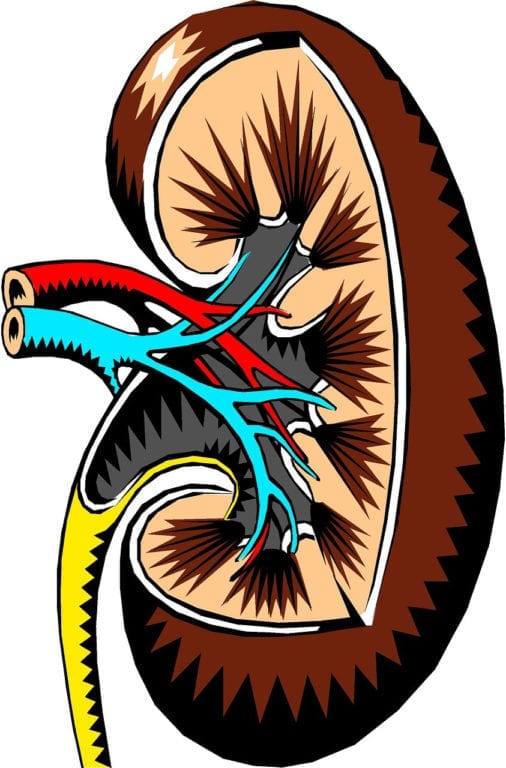Evotec SE and Chinook Therapeutics have entered into a strategic partnership in an effort to find, create, and develop viable treatments for those living with chronic kidney diseases. Under the terms of their agreement, both companies will utilize Evotec’s comprehensive molecular datasets that have been gathered from thousands of chronic kidney disease patients covering multiple etiologies. Their goal is to create therapies for polycystic kidney disease (PKD), IgA nephropathy, lupus nephritis, and other glomerular diseases.
Terms of the Agreement
All terms of the partnership between the two companies were meant to enhance the possibility of developing viable treatments. One example is the access given to NURTuRE Patient Biobank and the PanHunter Multi-Omics Platform; both companies will be able to fully utilize both. This access will hopefully result in a better definition of the disease’s molecular drivers and the identification of targets for drug development.
The NURTuRE, short for the National Unified Renal Translational Research Enterprise, Patient Biobank is the first of its kind, as it contains data from chronic kidney disease and nephrotic syndrome patients from Scotland, England, and Wales. The data from nearly 4,000 patients are used for research around the globe.
Turning to the PanHunter Multi-Omics Platform, which was created by Evotec, both companies will now have access to the thousands of molecular datasets of chronic kidney disease patients. This platform takes both enhanced throughput proteomics and transcriptomic and combines them, along with cell imaging, to the data analysis platform PanHunter.
Both companies hold responsibility when it comes to the discovery and preclinical development of possible treatments. Looking at individual responsibilities, Evotec will get funding for research, royalties on net sales, and milestone payments, along with an upfront payment; while Chinook will lead both the clinical development and commercialization of any drug identified as a treatment.
About PKD
Polycystic kidney disease is characterized by cysts in the kidneys that hinder the organ from filtering waste out of the blood. There are two forms of the condition: autosomal recessive and autosomal dominant. The former is the result of mutations in the PKHD1 gene, while the latter is caused by either an altered PKD1 or PKD2 gene. Medical professionals are unsure of the exact function of these genes, but they suspect that they play a role in the transmission of chemical signals from the outside of the cell into the nucleus.
Regardless of inheritance, affected individuals will experience cysts. These cysts are most commonly found in the kidneys, although they can impact other organs as well. The liver is the second most affected. Other symptoms include headaches, kidney stones, recurrent urinary tract infections, abnormalities of the heart valve, blood in the urine, a feeling of fullness in the abdomen, and pain in the back and sides. These symptoms can progress into kidney failure. Treatment is the most effective if the disease is found early, and it is symptomatic. Doctors recommend lifestyle changes like a healthy diet and exercise, pain medication, drugs for high blood pressure, and antibiotics to combat any infection. Surgery to remove cysts may also be necessary. If the disease progresses to kidney failure, affected individuals will require dialysis or a kidney transplant.
About Lupus Nephritis
Lupus nephritis is a common complication of lupus. In fact, 40% of lupus patients go on to develop LN. In this condition, antibodies attack the part of the kidneys that filter out waste, causing proteinuria, inflammation, hematuria, high blood pressure, and kidney failure in extreme cases. Females and those of African and Asian descent are at a higher risk of developing lupus.
Symptoms specific to lupus nephritis include pain and swelling in the joints, dark and foamy urine, edema, high blood pressure, muscle pain, fever, and rash. The cause is unknown, although medical professionals suspect that it is a combination of genetic and environmental factors. Various lab tests, including urine tests, blood tests, and a kidney biopsy, are used to diagnose this condition. Treatment aims to decrease inflammation, reduce high blood pressure, and suppress the immune system.
About IgA Nephropathy
Also referred to as Berger’s disease, IgA nephropathy (IgAN) is a chronic kidney disease that occurs when antibodies accumulate and damage the kidneys. It impacts males more than females and is estimated to impact approximately 130,000 people in the United States annually. Looking towards symptoms, they may not appear in the early stages of the disease. When they become apparent, they will include pain below the ribs and in the loin area, blood in the urine, swelling in the hands and feet, high blood pressure, drowsiness, proteinuria, and eventually kidney failure.
These symptoms are all the result of an accumulation of antibodies in the kidneys, which causes inflammation and damage to the glomeruli. This prohibits the kidneys from properly filtering waste from the blood. Beyond this, the cause of IgAN is not completely understood. Some medical professionals believe that it is an autoimmune condition, while others suspect a genetic cause. Regardless of cause, treatment options consist of medications that lower blood pressure, drugs to treat inflammation, diuretics, reducing cholesterol levels, and in severe cases, dialysis and a kidney transplant.
Find the source article here.








